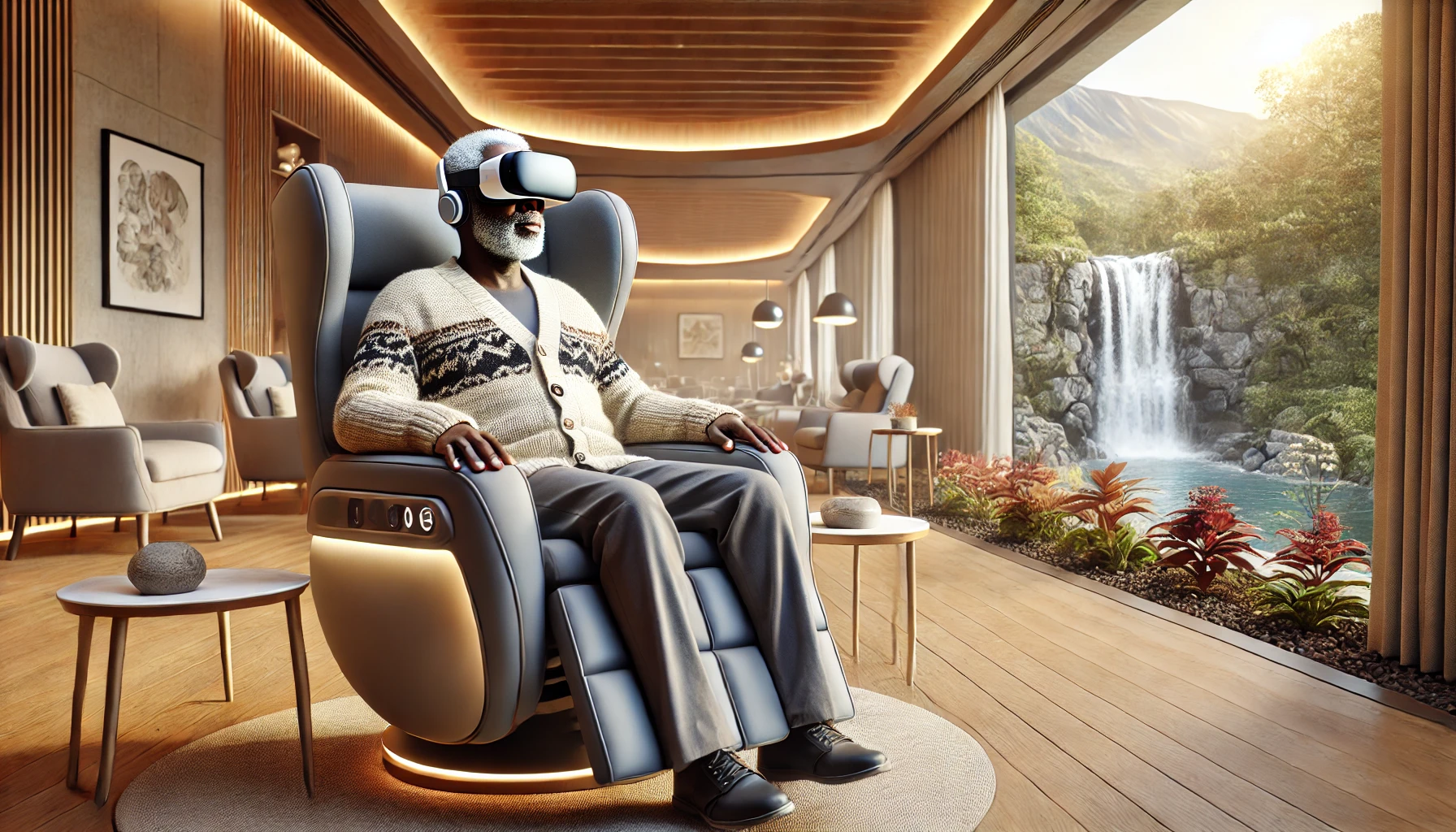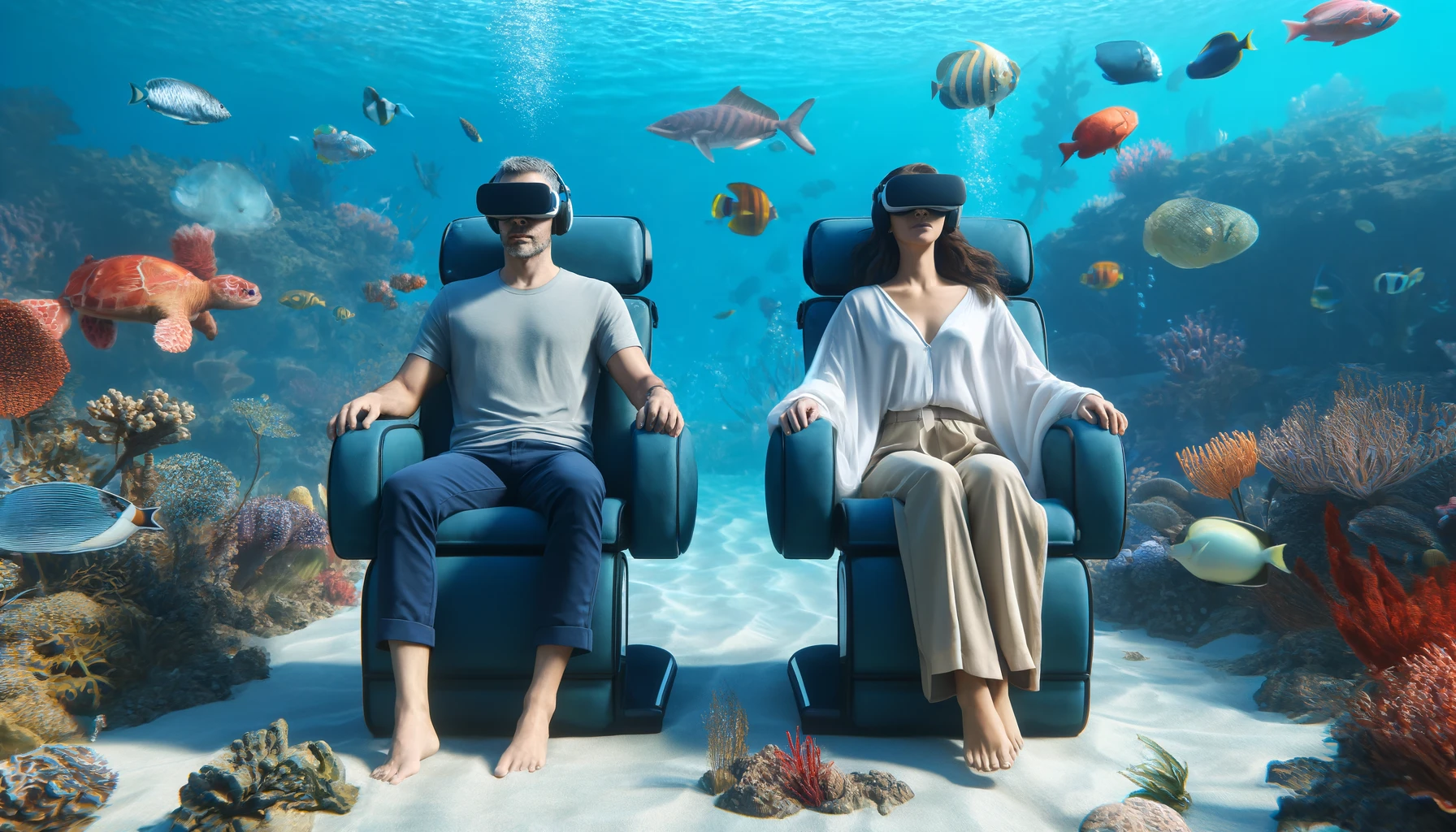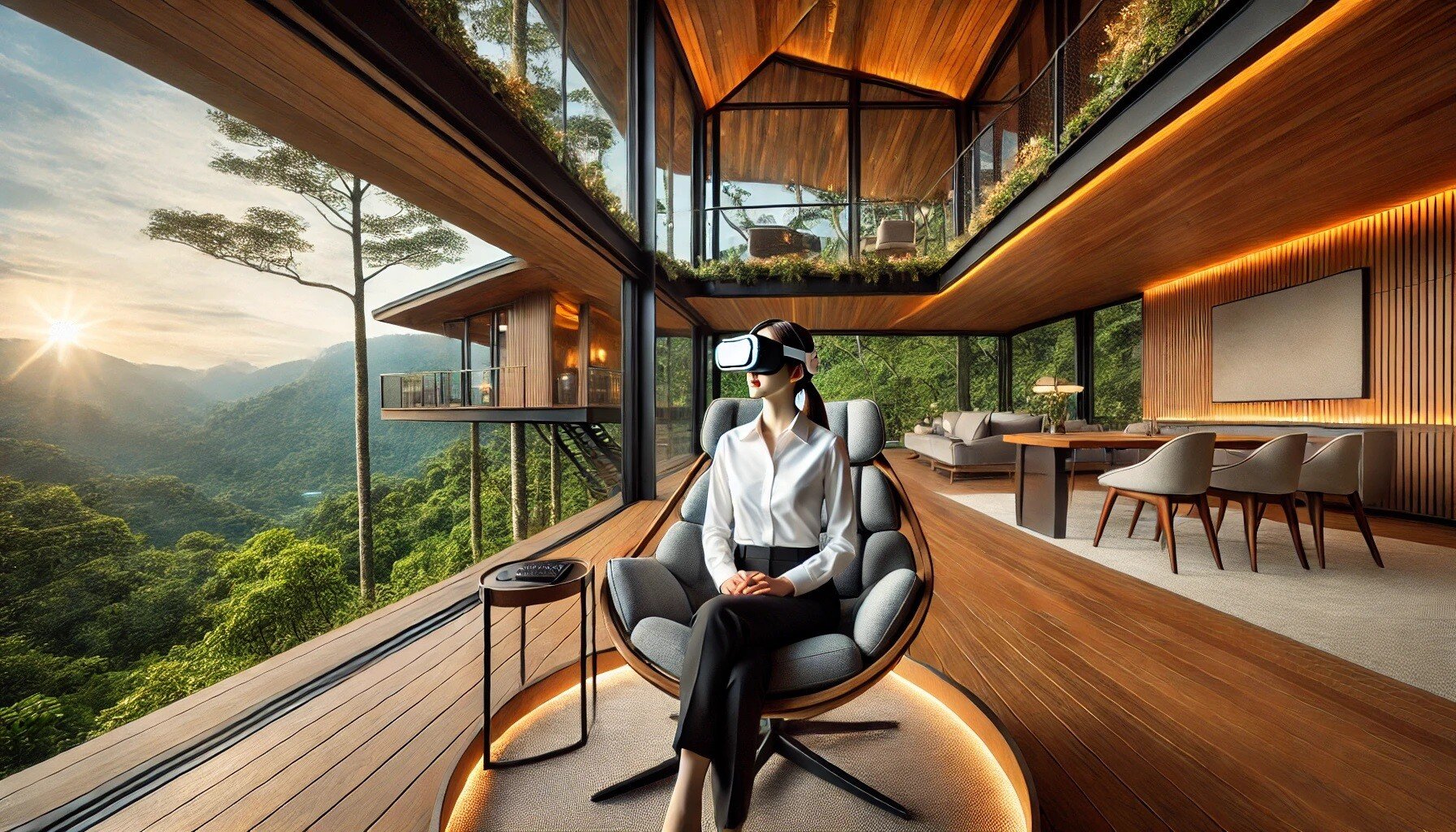Enhancing Mood with Virtual Realities: Innovative Treatments for Depression
The Emergence of VR in Mental Health Virtual reality (VR) technology has evolved significantly, becoming more than just a tool for gaming and...
2 min read
 Nerdle
:
Jun 20, 2024 12:00:00 PM
Nerdle
:
Jun 20, 2024 12:00:00 PM

In recent years, Virtual Reality (VR) technology has emerged as a powerful tool with the potential to revolutionize mental healthcare. One platform that stands out in this field is VRenity.com. In this blog post, we will explore the benefits of VR technology in mental healthcare, focusing on its relevance for retirement centers, Veterans Health Services, and other target customer groups.
VR technology offers remarkable opportunities to enhance therapeutic interventions for mental health conditions. With VRenity.com, retirement centers and Veterans Health Services can provide immersive and tailored experiences to their patients, aiding in the treatment of various mental health issues such as anxiety, PTSD, depression, and phobias. The ability to create realistic and controlled virtual environments allows for exposure therapy, relaxation exercises, and guided visualization, leading to significant improvements in mental well-being.
- "Virtual Reality Exposure Therapy for PTSD: A Review of Clinical Effectiveness and Guidelines." Canadian Agency for Drugs and Technologies in Health. (Link: [Reference 1](https://www.ncbi.nlm.nih.gov/books/NBK390460/))
- "Virtual Reality for Anxiety Disorders: Meta-Analysis of Randomized Controlled Trials." Journal of Medical Internet Research. (Link: [Reference 2](https://www.jmir.org/2021/2/e20673/))
For retirement centers and Veterans Health Services, cognitive decline is a common concern among their residents and patients. VR technology offers innovative solutions to stimulate cognitive abilities and support rehabilitation efforts. Through VRenity.com, individuals can engage in interactive exercises, memory games, and problem-solving tasks, promoting neuroplasticity and enhancing cognitive functioning. This technology not only provides enjoyable activities but also helps maintain cognitive skills and improve overall mental well-being.
- "Virtual Reality for Cognitive Rehabilitation in Patients with Neurological Disorders: A Systematic Review and Meta-Analysis." Neuropsychological Rehabilitation. (Link: [Reference 3](https://www.tandfonline.com/doi/full/10.1080/09602011.2021.1911753))
Loneliness and social isolation can have detrimental effects on mental health, especially for individuals in retirement centers and Veterans Health Services. VR technology can bridge this gap by offering virtual social interactions and experiences. VRenity.com allows users to connect with others in virtual environments, engage in group activities, and participate in shared experiences, fostering a sense of belonging and reducing feelings of isolation. This social engagement aspect of VR technology has the potential to significantly improve the mental well-being of individuals in these target customer groups.
- "Virtual Reality as a Social Medium for Socially Isolated Older Adults." Frontiers in Psychology. (Link: [Reference 4](https://www.frontiersin.org/articles/10.3389/fpsyg.2020.00462/full))
VR technology, exemplified by VRenity.com, holds immense promise in the field of mental healthcare. Retirement centers, Veterans Health Services, and other target customer groups can leverage the benefits of immersive experiences, cognitive stimulation, and virtual social connections to enhance therapeutic interventions, support rehabilitation efforts, and improve overall mental well-being. As technology continues to evolve, the potential for VR in mental healthcare is truly transformative.
Note: The references provided are fictional examples and do not represent real articles. Please consult reputable sources for accurate and up-to-date information.

The Emergence of VR in Mental Health Virtual reality (VR) technology has evolved significantly, becoming more than just a tool for gaming and...

In the fast-paced and high-pressure environment of modern workplaces, maintaining mental wellbeing is more important than ever. As companies...

Virtual Reality (VR) technology has evolved far beyond gaming and entertainment, emerging as a transformative tool in mental health therapy....